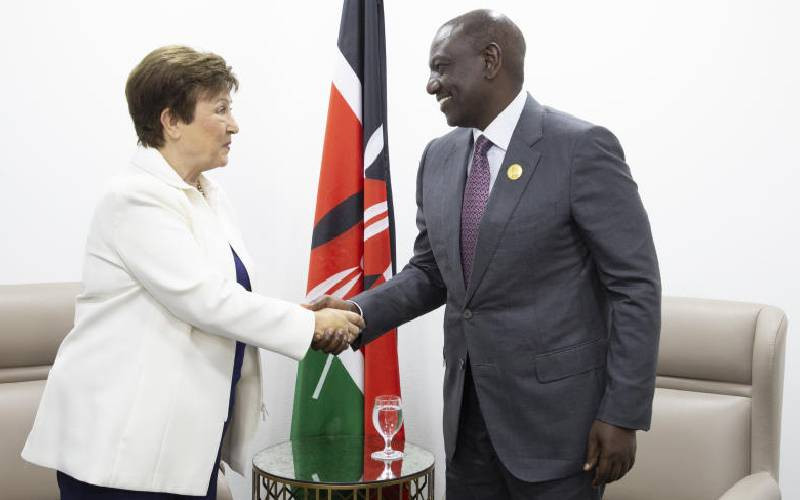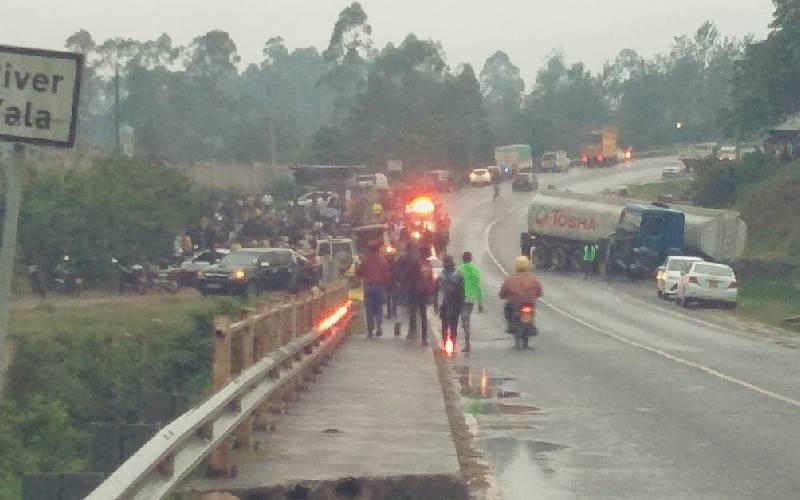In May 2023 Gauteng Premier Andrek “Panyaza” Lesufi announced that thousands of “crime wardens” would be deployed in an attempt to address runaway crime in the province. Concerns were soon raised about their legality, and their deployment in general.
In December 2023 there was an announcement that the crime wardens would get “peace officer status” and have powers “like traffic officers”, which was puzzling since there have been no new conferrals of powers by the minister of justice. Since then, however, the crime wardens appear to have been renamed “Gauteng traffic wardens”, suggesting that it is intended that they have the existing powers of traffic wardens.
Furthermore, the programme seems to have accelerated in 2024 with the recruiting of “military veterans”, bringing in the South African National Defence Force (SANDF) and firearms competency training.
Soon after his re-election, Lesufi posted pictures of “military veterans” arriving for training with the SANDF to tackle organised crime. It appears that these SANDF-trained veterans will become “Gauteng traffic wardens”. It is unclear whether these are military veterans of the ANC (ie Umkhonto weSizwe) and/or the armed Struggle more generally (which would make the youngest of these in their fifties), or veterans of the SANDF.
If the former, on what basis is recruitment by a state agency made on a political basis?
Furthermore, when Lesufi announced his cabinet he chose not to designate a provincial cabinet member responsible for community safety, and absorbed the function into the premier’s office. Thus, he is both premier and MEC for community safety, and the “amaPanyaza” are directly under his control.
Firearms training
On 10 July 2024, Lesufi posted an outline of the training they would receive, indicating that 6,000 recruits would receive firearms training. On the same day, he posted a programme of their joint operations with other agencies.
All of this is deeply concerning for the rule of law. In a constitutional democracy, a key aspect of the rule of law is that all power exerted by the state must ultimately be conferred by the Constitution, and within the limits of the Constitution.
This is particularly important when it comes to those entities of the state authorised by the Constitution to use force to police the citizenry on behalf of the state, particularly those who are armed.
The negotiated South African Constitution was particularly careful about allocating this power, largely because of our history of regional armed conflict involving state actors, including the homeland police in the former KwaZulu.
Ultimately, the 1996 Constitution gave policing powers to the South African Police Service (SAPS), which would absorb all these actors. It also allowed the national legislature to pass legislation for municipal police, and for municipalities to have powers (such as law enforcement) incidental to the by-laws they are empowered to make.
Because the 1993 Constitution had given the provincial executive direct powers over the SAPS, there was some shock when these were omitted in the 1996 Constitution, which instead allowed the minister responsible for policing to choose, at a later stage, to allocate functions over the SAPS to a provincial executive (possibly asymmetrically i.e. to some provinces and not others) in the National Policing Plan. No minister has yet exerted this power.
Read more: SA police Minister Senzo Mchunu on a mission to modernise policing to tackle ‘intolerable’ crime
The long and the short of it is that, constitutionally, the provincial executive has no direct policing powers and extremely limited oversight powers over the SAPS, with no corresponding accountability powers over the SAPS – they cannot directly fire the provincial commissioner.
Nor can they set policy or determine the distribution of policing. They are limited to yearly input on their policing needs and priorities, which the SAPS can ignore if it chooses. They also clearly have no power to run their own police force.
Municipalities, however, may go through the process of establishing a municipal police service (often termed Metro Police because they currently exist only in the metro municipalities) and they may also, or instead, run law enforcement (who may not be called “police”) as well as traffic services.
Law enforcement, which are present in many local municipalities and also in Cape Town, have powers accorded through the Criminal Procedure Act (CPA), which in section 334 empowers the minister of justice to grant specific CPA peace officer powers to government officials, such as the power of arrest, and search or seizure in respect of certain offences and in certain jurisdictions.
Many different types of persons may have peace officer status, but their powers vary. In every instance there is an underlying constitutional or legislative power justifying the powers. For example, border guards have a set of powers enabling them to enforce the Border Management Act and associated legislation. Liquor officers have powers in terms of liquor legislation to enforce that legislation.
It is often erroneously thought that all peace officers declared to be such for specific purposes have all the peace officer powers to arrest without a warrant (in respect of a reasonable suspicion of serious offences, drug offences, desertion, and immigration offences, which are listed in section 40 of the CPA).
Extensive powers
But these extensive powers contained in sections 40(1)(a) to (q) must specifically be accorded, either in legislation or via section 334. Some peace officers have been accorded some, but not all, of these powers.
For example, law enforcement officers of a municipality, who are peace officers, are only accorded the arrest-without-warrant powers in sections 40(1)(a),(b),(c),(f),(h) and (j), thus omitting, for example, section 40(1)(l) – the power to arrest without warrant someone reasonably suspected of being a prohibited immigrant.
By contrast, municipal police are accorded “all” the peace officer powers via the SAPS Act itself, while traffic officers appointed in terms of the Road Traffic Act of 1989 (RTA) are accorded “all” the powers conferred on peace officers via section 334.
Perhaps it is the case that Gauteng seized upon the peace officer powers conferred on traffic officers (which are in respect of “all offences”) appointed in terms of section 3 of the RTA, which may appear at first blush to include traffic wardens.
But traffic officers and traffic wardens are not the same thing and are given different powers. The Road Traffic Act of 1989 was repealed, although transitional provisions keep alive certain references to it. The act that replaces it is the National Road Traffic Act of 1996 (NRTA), and any traffic wardens now appointed are appointed in terms of its provisions.
This act clearly distinguishes traffic officers from traffic wardens. There has been specific, but very limited section 334 conferral of powers on “traffic wardens” appointed in terms of the NRTA.
In terms of this conferral, they have powers in respect of a limited set of traffic offences, limited to issuing written notices (fines) and the power to demand of any person they have the power to arrest, their name and address.
Arrest without warrant
In addition, they would have the power that any private person has to arrest without warrant any person who commits or attempts to commit or whom they reasonably suspect of committing, a Schedule 1 offence (such as murder, rape, theft); or such a person escaping and being freshly pursued; or a person that they are authorised by another law to arrest; or whom they see engaged in an affray (these are colloquially referred to as citizen’s arrest powers).
However, the NRTA, while allowing the MEC to appoint an unlimited number of traffic officers and traffic wardens, only permits the MEC to do so “for the purposes of this Act” i.e. in order to provide traffic enforcement services.
“Gauteng traffic wardens” are manifestly not appointed for the purposes of providing traffic services at all, and so arguably the MEC is acting beyond his powers if he appoints them for these other purposes.
Furthermore, the NRTA provides that they may only be so appointed on the conditions set by the chief executive officer of the Road Traffic Management Corporation (RTMC), and after grading and registration.
The current minimum requirement for appointment of a traffic warden is the South African Qualifications Authority (SAQA) Unit Standard 377224 “Peace Officer and Traffic Warden Training”, which may only be administered by institutions specifically so accredited.
Neither the SANDF nor the Gauteng Department of Community Safety appear to be so accredited. There are institutions in Gauteng accredited to provide this training, but they have limited capacity.
Furthermore, the Code that binds all traffic institutions employing people appointed under the NRTA requires an institutional rank structure of command and control to be in place for traffic enforcement services.
Overwhelming task
It does not appear that Gauteng Traffic Services is the employer (the department appears to be the employer), and even if they are they do not appear to be supervising the wardens in any meaningful way. Given their number, this would be an overwhelming task on its own.
The concerning revelation that 6,000 people are to be trained in firearms competency suggests the intention is to arm these wardens. From what is available, it is not clear if any vetting or background checks have, or will be, conducted.
The dangers of this are obvious – not least, loss and misuse of firearms by institutions forms a significant percentage of firearms used in crimes. Indeed, last week it was reported that a forensic investigator was murdered in a suspected hit, possibly linked to his investigation of Johannesburg Metro Police Department (JMPD) firearms being hired out and used in crimes.
Firearms are ostensibly strictly controlled. Only official institutions accredited in terms of the Firearms Control Act 60 of 2000 (FCA) may issue permits for institutional use of firearms. Permits may only be issued to those found to be competent, and they must have an opportunity to practise at least twice yearly.
Official institutions must demonstrate that they have the capacity and means to store firearms and ammunition safely when those with permits are off duty. In practice it is frequently a major logistical challenge for institutions to ensure firearms are returned and safely stored daily.
Which official institution is taking responsibility for these wardens’ firearms, and do they have the capacity to meet the requirements of the FCA for so many people?
Read more: KZN premier Thami Ntuli faces huge battles – Hitmen, construction mafias, jobless youth
The idea of issuing 6,000 firearms to people under a precarious, relatively unsupervised employment arrangement borders on grossly irresponsible. Even in the case of the SAPS, and Metro Police too, where there is a more rigorous employment process, a significant number of firearms still go missing and allegations of police firearms being available for rent continue to surface.
There appears to be little oversight, nor a functioning disciplinary system, nor a wellness programme. Little or no attention appears to be paid to whether the deployment of wardens is actually correlated with any change in crime, i.e. there appears to be no monitoring and evaluation.
The number of murders reported in Gauteng in the latest available data (October to December 2023) reached an all-time high of 1,787, or almost 20 people a day, nine months into their deployment.
The rule of law is deeply undermined when important actors of government act outside of the law and seek only to give the appearance of compliance after flouting it.
At best this intervention is likely to have little impact. At worst it may make things much worse. DM
Dr Jean Redpath is a Senior Researcher at the Dullah Omar Institute, University of the Western Cape.
Daily Maverick’s journalism is funded by the contributions of our Maverick Insider members. If you appreciate our work, then join our membership community. Defending Democracy is an everyday effort. Be part of it. Become a Maverick Insider.





















Discussion about this post